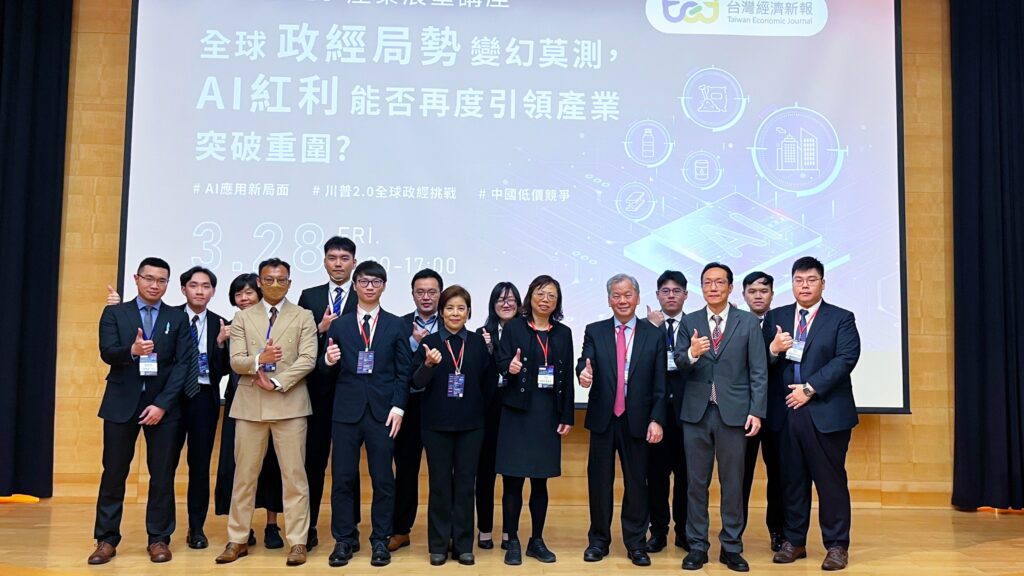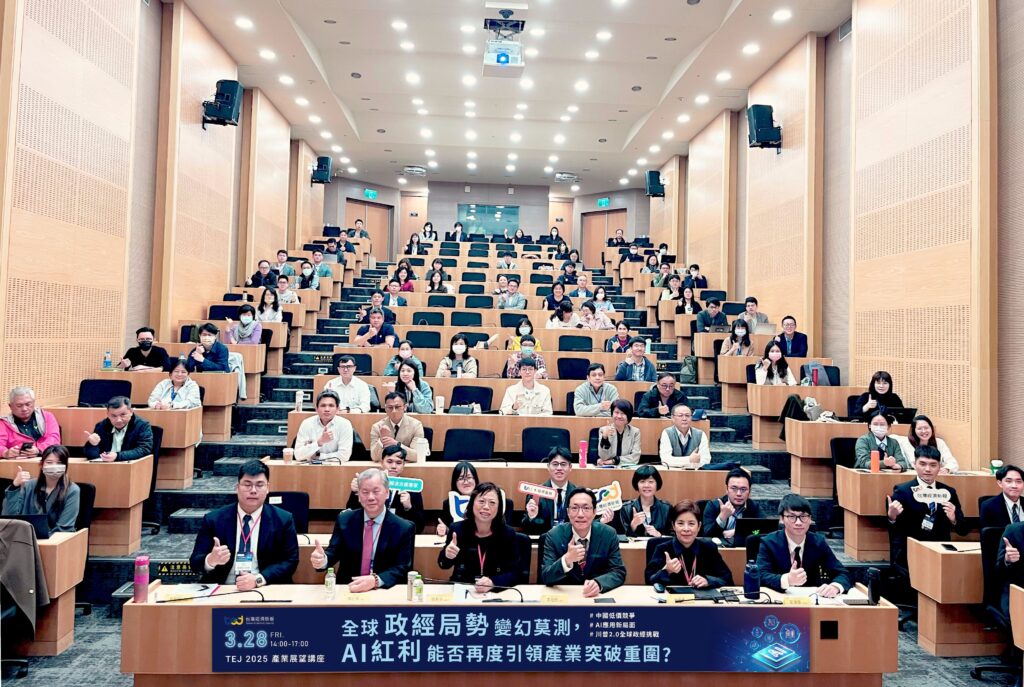
On March 28, 2025, Taiwan Economic Journal (TEJ) hosted the “TCRI 2025 Industry Outlook Seminar,” providing an in-depth analysis of the complex global economic landscape and its impact on Taiwanese industries. The seminar emphasized the burgeoning potential of AI technologies and covered international political and economic developments, challenges faced by traditional industries, and strategies for the electronics sector amidst trade wars and technological competition.
Table of Contents
Professor Chen Songxing from the National Development and China Studies Institute at Chinese Culture University highlighted the increasing unpredictability of the global economy. He noted that the Trump administration’s protectionist trade policies, including tariffs and the use of the International Emergency Economic Powers Act, could further elevate trade barriers. This poses significant risks for countries heavily reliant on exports to the U.S.. Furthermore, China now faces tariff pressures and the need to adjust its supply chains. Prof. Chen also pointed out that high global debt levels, inflation, and societal divisions could render previous successful economic strategies ineffective, exacerbating the risks to economic prospects.

TCRI analyst Peng Weilin discussed the severe impact of China’s overcapacity and low-priced exports on Taiwan’s traditional industries, including plastics and steel. Chinese competitors exporting products below market prices have disrupted market orders, limiting revenue growth and profitability for Taiwanese companies. For instance, in the plastics industry, the increasing supply-demand ratio of China’s basic chemicals and its weak domestic demand has led to a surge in exports, challenging Taiwanese firms’ survival. Similarly, the steel industry faces difficulties due to China’s low-priced steel dumping, with anti-dumping measures proving limited effectiveness. The shipping industry is also affected by geopolitical factors and strategic price hikes, while the construction sector experiences a slowdown due to government credit controls, leading to decreased transaction volumes and cooling consumer sentiment.
TCRI analyst Gao Yuxiang highlighted the electronics industry’s challenges in 2025, including the intensified U.S.-China trade war and the emergence of low-cost AI models like DeepSeek. The first wave of Trump’s 2.0 tariffs significantly affects Taiwanese supply chains in Mexico and China, particularly notebook, server, desktop, networking equipment, and automotive components. To mitigate tariff risks, Taiwanese companies are expanding investments in the U.S. and diversifying global layouts to reduce geopolitical risks. Moreover, China’s push for semiconductor self-sufficiency adds long-term competitive pressure on Taiwan’s semiconductor industry. Despite concerns about overcapacity due to models like DeepSeek, AI is expected to remain a primary growth engine for the electronics industry in 2025, with increased adoption in cloud services, enterprises, and government applications.
The seminar underscored that Taiwanese industries face unprecedented challenges due to rising trade protectionism, geopolitical instability, and China’s economic restructuring. Traditional industries must accelerate transformation, enhance product value, and explore diverse markets. The electronics sector must survive amidst U.S.-China technological competition by investing in innovation and diversifying production to ensure supply chain resilience. The rapid development of AI technologies presents new growth opportunities, contingent on companies’ innovation capabilities and adaptability. To thrive in the evolving global economy, Taiwanese industries must continuously enhance their competitiveness.
👉 DeepSeek Launches Low-Cost AI — A Game-Changer for the Industry?
As a leading data provider in Taiwan, TEJ offers comprehensive market databases essential for quantitative investment strategies. Our Watchdog (WD) product delivers major events on Taiwan listed companies, serving as a valuable resource for event-driven and alternative data analysis.
Explore the latest insights into Taiwan’s corporate landscape with the TEJ Watchdog Database, which offers a quantitative analysis of major tech industry events and their impact on credit conditions, rated from -3 to +3. Stay informed on dynamic sector changes, understand credit risk drivers, and adjust your investment strategies with confidence.
